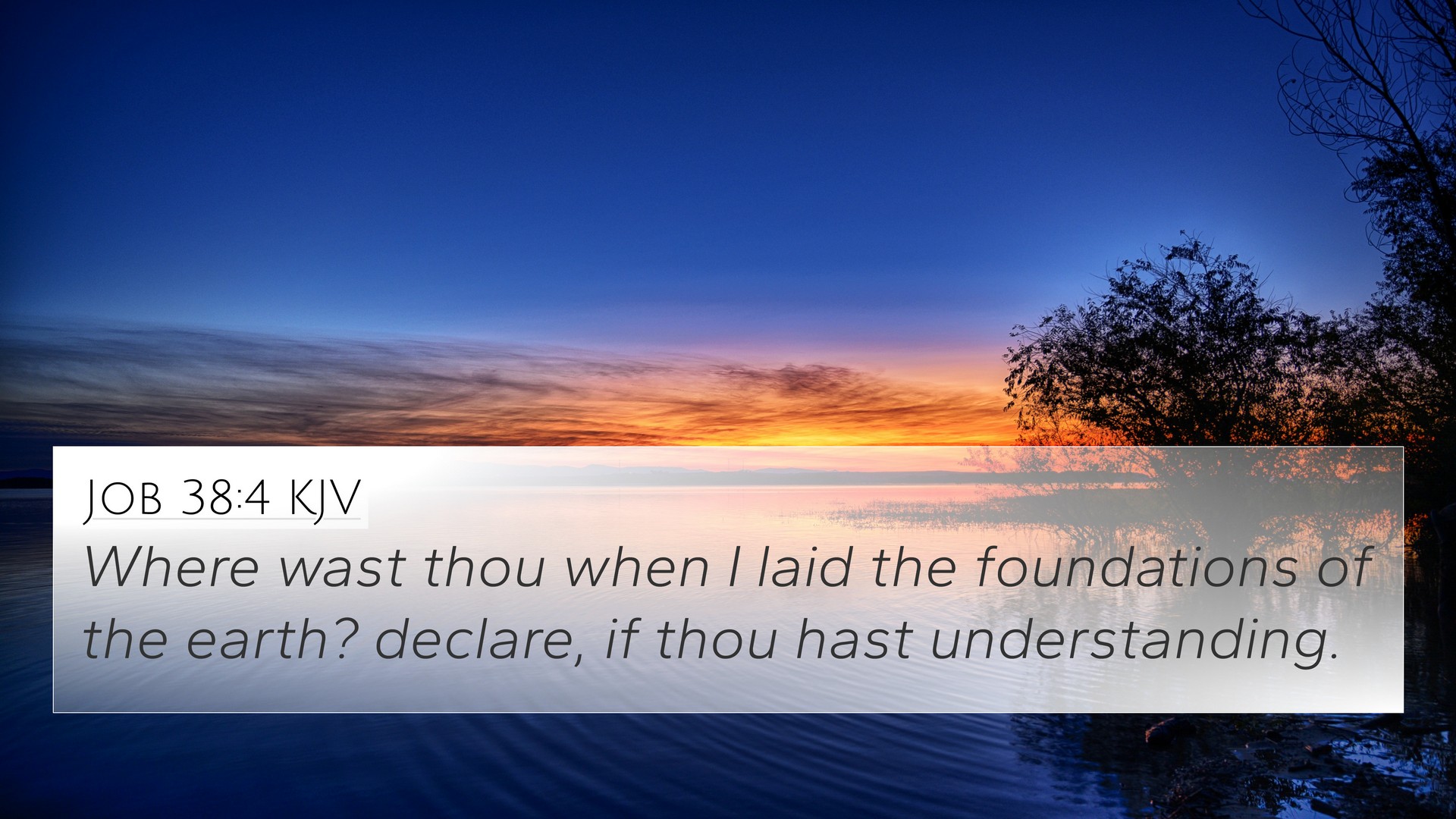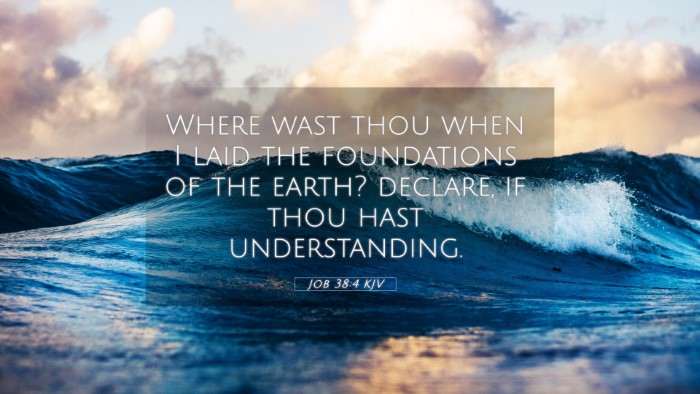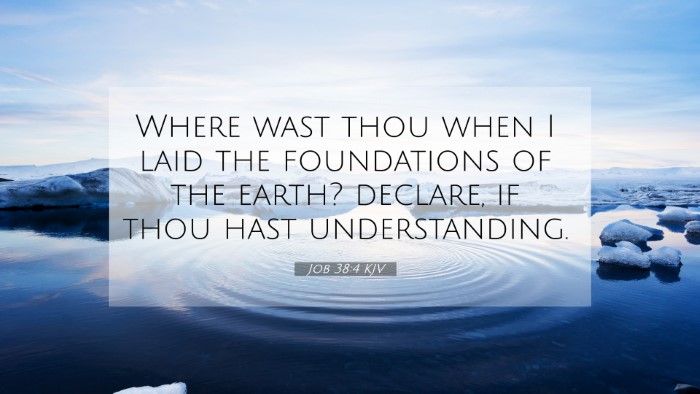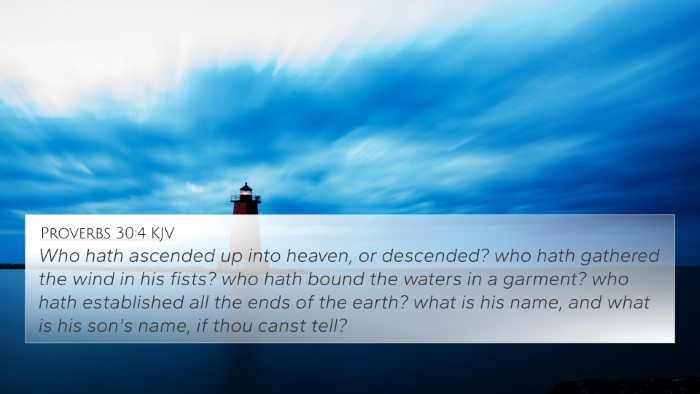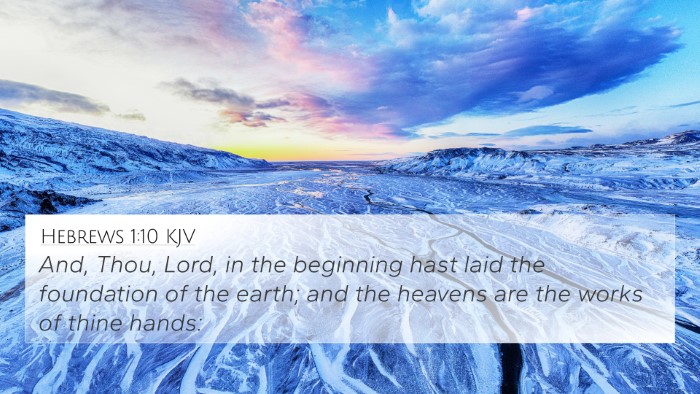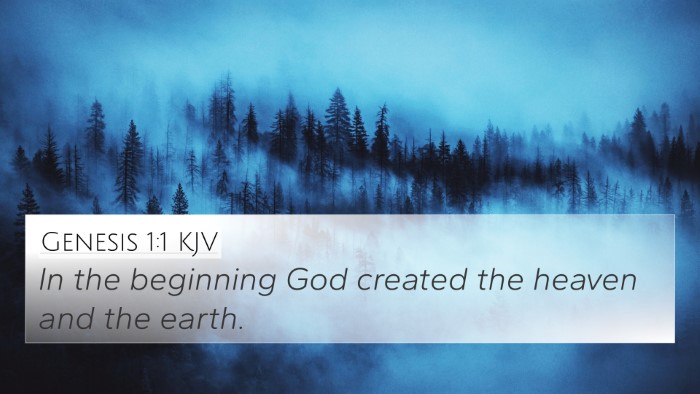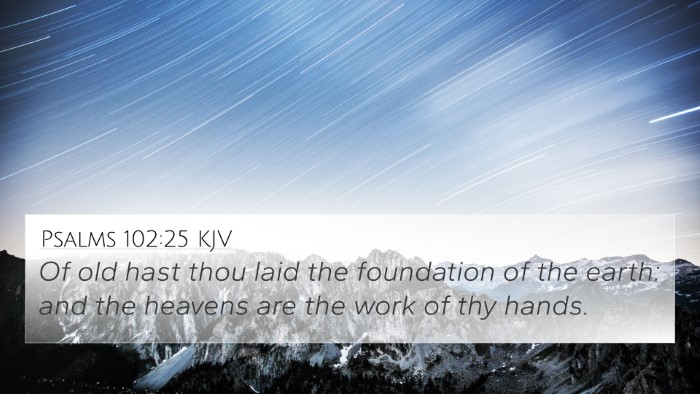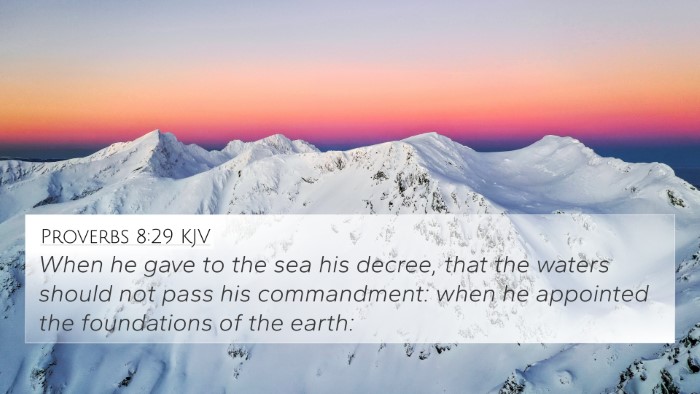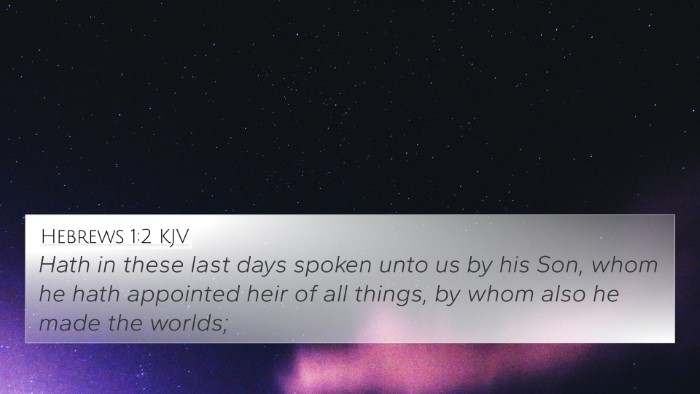Understanding Job 38:4
Job 38:4 records the moment when God questions Job, asking, "Where wast thou when I laid the foundations of the earth? declare, if thou hast understanding." This verse marks a significant moment in the narrative of Job, emphasizing God's omnipotence and Job's limited understanding.
Commentary Summary
This verse serves as a pivotal point in the larger context of the Book of Job, where God speaks in response to Job's earlier lamentations and questions about the justice of God. Here are some insights based on public domain commentaries:
- Matthew Henry: Emphasizes the vast chasm between God’s wisdom and human understanding. God’s questioning illustrates His sovereignty over creation and highlights that humanity, including Job, has no claim to knowledge about divine workings at such a fundamental level.
- Albert Barnes: Reflects on the metaphor of the earth’s foundations. Barnes illustrates that while men may struggle with the mysteries of suffering and divine justice, the response from God redirects attention to His creation, power, and wisdom, which surpasses all human comprehension.
- Adam Clarke: Points out that this question challenges Job (and the reader) to recognize the limitations of human perspective. Clarke notes that the reality of God’s creative act is underlined; hence, the essence of faith lies not in fully understanding God but in trusting His wisdom and authority.
Theological Insights
The verse is rich with theological implications:
- God's Sovereignty: This question asserts God's authority over all creation, affirming that He alone is the Creator.
- Human Limitation: It underscores human limitations in understanding divine matters, encouraging humility in the face of life’s inexplicable hardships.
- Faith and Trust: The verse invites believers to have faith in God’s character despite not always understanding His ways.
Cross-References
This verse connects to various other Bible scriptures that deepen the understanding of God’s nature and humanity's place in creation. Here are some significant cross-references:
- Genesis 1:1: "In the beginning, God created the heaven and the earth." This foundational verse emphasizes God's role as creator.
- Psalms 104:5: "The Lord established the earth upon its foundations, so it will never move." This highlights God's creative power and the stability of creation.
- Isaiah 45:12: "I have made the earth, and created man upon it: I, even my hands, have stretched out the heavens..." This mirrors the theme of God's creative authority.
- Proverbs 8:22-30: Wisdom's role in creation echoes the collaborative nature of divine wisdom and knowledge.
- Romans 1:20: "For the invisible things of him from the creation of the world are clearly seen..." This verse emphasizes the revelation of God's attributes through creation.
- Colossians 1:16: "...for by him were all things created..." This New Testament reference affirms Christ’s role in creation, linking the Old Testament with New Testament theology.
- Job 38:6-7: The subsequent verses continue to explore the creation narrative, where the morning stars sang together, revealing that creation was a joyous act.
Connections Between Bible Verses
Examining the connections between Job 38:4 and these cross-references illustrates the unity of Scripture regarding God's sovereignty and the nature of creation:
- Job’s predicament serves as a backdrop for understanding the nature of suffering within God’s plan, similar to the reflections in Romans 8:28, which assures that all things work together for good to those who love God.
- Genesis and Psalms speak to the fundamental attributes of God as Creator, mirroring the themes expressed in Job.
- The inquiry in Job invites a deeper analysis of the relationship between God’s creative acts and human understanding as explored in Proverbs and Colossians.
Thematic Bible Verse Connections
In exploring Job 38:4, theologians can trace themes such as suffering, creation, and the mystery of divine knowledge. Such themes resonate throughout both Old and New Testaments:
- The Glory of Creation: A motif present from Genesis to Revelation, emphasizing the splendor and majesty of God’s handiwork.
- The Problem of Suffering: Discussed in Job, echoed in Psalms and brought into resolution in the New Testament through Christ’s redemptive work.
Conclusion
Job 38:4 functions not only as a question from God to Job but also as a profound moment for all readers to consider their place in relation to God’s vast creation. Through cross-referencing this verse with others, believers can glean a deeper appreciation for God’s wisdom, the role of suffering, and the ultimate trust we must place in His divine plan.
